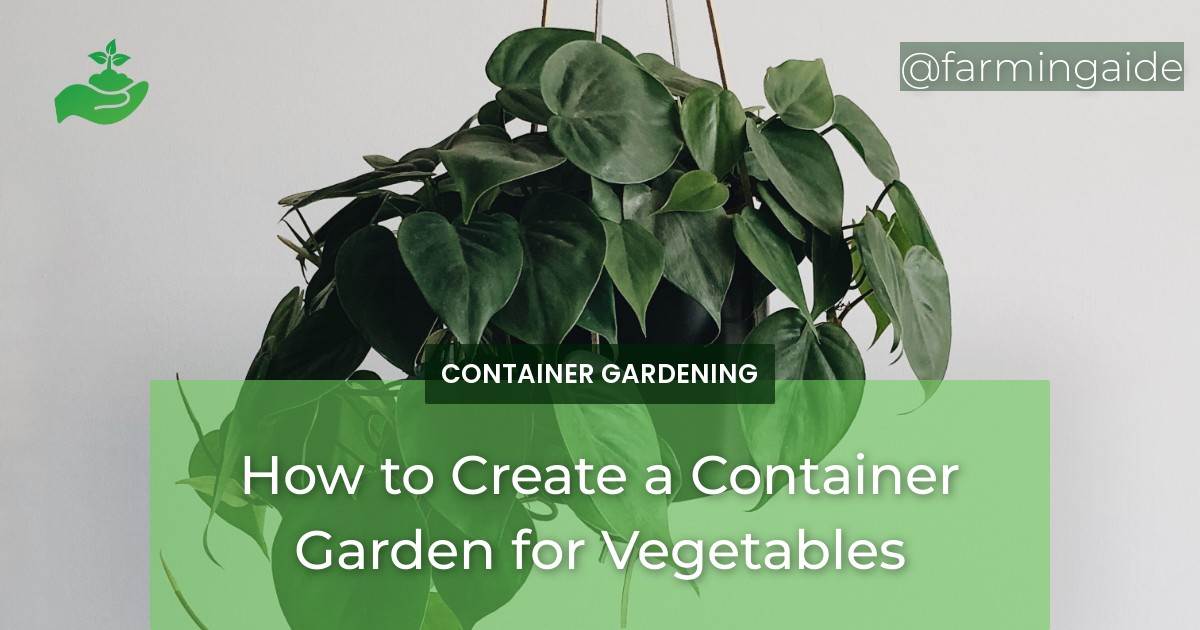Container gardening has become increasingly popular in recent years, especially in urban areas where space is limited. It is a form of urban farming and horticulture that allows individuals to grow their own vegetables in small spaces. Not only does it provide a source of fresh produce, but it also offers numerous benefits such as reducing food costs, promoting sustainability, and improving overall well-being. In this comprehensive article, we will delve into the world of container gardening for vegetables and provide you with all the necessary information to create a successful and thriving container garden. From choosing the right vegetables to managing pests and diseases, we’ve got you covered.
Choosing the Right Vegetables for Container Gardening
When it comes to container gardening, selecting the right vegetables is crucial for a successful harvest. Not all vegetables are suitable for container gardening, so it’s important to consider factors such as size, growth habits, and sunlight and water requirements. Some of the best vegetables for container gardening include tomatoes, peppers, leafy greens, and herbs. These vegetables are compact, have shallow root systems, and can thrive in smaller spaces.
Container Planting Ideas
The key to a successful container garden is proper container selection and preparation. There are various types of containers that can be used for vegetable gardening, such as pots, hanging baskets, and grow bags. Each type has its own advantages and disadvantages, so it’s important to choose the one that best suits your needs. Additionally, there are many creative and space-saving container planting ideas, such as vertical gardening and using recycled materials, that can help maximize your growing space.
Container Gardening for Beginners
If you’re new to container gardening, don’t worry! It’s a great way to start your gardening journey. To get started, it’s important to choose the right soil for your containers. Potting mix, compost, and vermiculite are all suitable options. Then, follow these basic steps to plant and care for your vegetables in containers: water regularly, fertilize as needed, and prune when necessary. With a little bit of patience and practice, you’ll soon be on your way to a thriving container garden.
Soil Management and Composting
Healthy soil is the foundation of a successful container garden. It’s important to choose the right type of soil for your vegetables, as well as regularly maintain it through composting and organic fertilizers. Composting not only helps improve soil health, but it also reduces waste and promotes sustainability in your garden.
Pest and Disease Control
Just like traditional gardening, container gardening is not immune to pests and diseases. However, there are natural and organic methods that can be used for pest and disease control, such as companion planting and homemade sprays. It’s important to regularly check your plants for any signs of pests or diseases and take preventative measures to keep your container garden healthy.
Sustainable Gardening Practices
Incorporating sustainable practices in container gardening not only benefits the environment, but it also promotes the health of your plants. Using eco-friendly containers and materials, as well as practicing water conservation, are just a few ways to make your container garden more sustainable. By reducing waste and promoting biodiversity, you can create a thriving and eco-friendly container garden.
Can I Use the Same Container Garden Setup for Growing Zucchini?
Yes, you can use the same container garden setup to grow zucchini. To ensure successful growth, here are some tips for growing zucchini in containers: use a large container, provide ample sunlight, and ensure proper drainage. With these tips for growing zucchini containers, you can enjoy fresh zucchinis from your own garden.
Seasonal Planning and Crop Rotation
Seasonal planning and crop rotation are important aspects of container gardening. By understanding the best times to plant and rotate crops, you can optimize your yield and maintain healthy soil. It’s also important to have a diverse selection of vegetables and rotate crops to prevent pest and disease buildup. With proper planning and rotation, your container garden will continue to thrive year after year.
Conclusion
Container gardening for vegetables is a great way to grow your own produce in small spaces. By choosing the right vegetables, containers, and soil, as well as implementing sustainable practices and proper pest and disease control, you can create a thriving and bountiful container garden. We hope this comprehensive article has provided you with all the necessary information to get started on your own container garden. Happy gardening!
RELATED ARTICLES:


